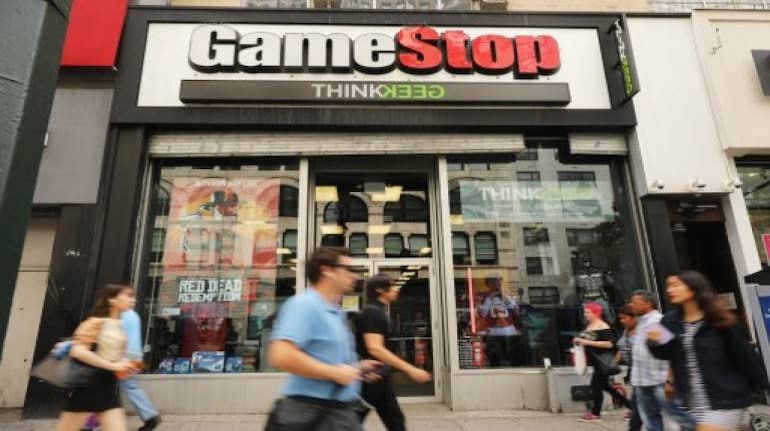



GameStop may well be a nondescript struggling chain of video game retail stores in the US, but if its stock price is anything to go by then it is definitely more in demand than the hugely popular FAANG – Facebook, Apple, Amazon, Netflix and Google – group of stocks that has even made Indians look at the US stock market for investment opportunities.
Shares of GameStop have surged from $19 on December 31, 2020, to $134.84 on January 27 – a gain of nearly 1,745 percent.
If the data looks too good to believe, then it is indeed too good to believe because the surge has nothing to do with fundamentals or growth potential of GameStop – not many visit a video game parlour or rent game CDs in this digital era. It is purely the result of a war, if one may call it so.
The war is between thousands of amateur investors who are part of a group called WallStreetBets on the online platform Reddit and a clutch of storied Wall Street investors.
Some have likened the war to the one between David versus Goliath as on one side there are lakhs or may be millions of average small investors, while on the other are suave hedge fund managers in their bespoke suits.
How the story unfoldedSo, what exactly has happened?
It all started when well-known hedge funds like Melvin Capital and Citron Research got interested in GameStock shares. These funds are known to target stocks that they feel are overvalued by going short on the shares.
Short selling or short sellers are those who borrow shares and sell while hoping the price would fall further so they will be able to buy the shares at a lower price and return the shares to the lender. Short selling is a widely accepted practice and is allowed in most of the markets across geographies.
Incidentally, the Indian markets also offer the ‘Stock Lending and Borrowing’ mechanism, or SLB, for better managing the settlement of short selling trades.
In the case of GameStop, the hedge funds had played their cards and were waiting for the shares to fall and make a killing. They had no idea that an unheard online group where members exchange tips and stock ideas would put a spanner in their plan and the wound would be so deep that they would end up staring at bankruptcy.
The group members decided to use the most lethal weapon that one can use against short sellers – the ‘short squeeze’.
Those who were following the chatter on WallStreetBets went on a buying spree, lapping up shares of GameStop thereby pushing up the stock price. Plain simple economics, higher the demand, more is the price.
But, how does this squeeze the short sellers? As mentioned, short sellers bet on the price falling so that they can buy the shares at a lower price and cover their short positions. But if the price starts rising, then they are pushed to a corner and squeezed as they will have to shell out more to cover their shorts.
And, if the price rises in a manner that defies all logic then the short sellers could be swiftly squeezed in such a manner that they could even be staring at millions or even billions of dollars of losses and even bankruptcy in rare cases.
Putting the squeezeThe concerted efforts of the followers of WallStreetBets pushed GameStop’s share price from $43.03 on January 21 to $347.51 on January 27 – a gain of over 700 percent in just five trading sessions.
This was the last thing the hedge funds wanted and the repercussions were loud and clear.
Melvin Capital has said it has closed its GameStop position though it added that the fund has not gone kaput. It is, however, public knowledge that well-known hedge funds like Point72 Asset Management and Citadel have extended a $2.75 billion financial lifeline to the fund amid reports that Melvin Capital lost around 30 percent in the January fortnight.
Renowned short-seller Andrew Left of Citron Research is also a worried man as he went short on GameStop’s shares when they were trading at around $40 apiece, while publicly saying that the shares would fall to $20.
Much to Left’s discomfort, the shares did not halve, but have definitely multiplied nearly nine times since he entered the arena.
The amateur investors, on the other hand, have shown the might of a collective approach. Shares of GameStop gained 51 percent on January 22 and followed it with gains of 92.71 percent on January 26 and 135 percent on January 27.
Discover the latest Business News, Sensex, and Nifty updates. Obtain Personal Finance insights, tax queries, and expert opinions on Moneycontrol or download the Moneycontrol App to stay updated!
Find the best of Al News in one place, specially curated for you every weekend.
Stay on top of the latest tech trends and biggest startup news.